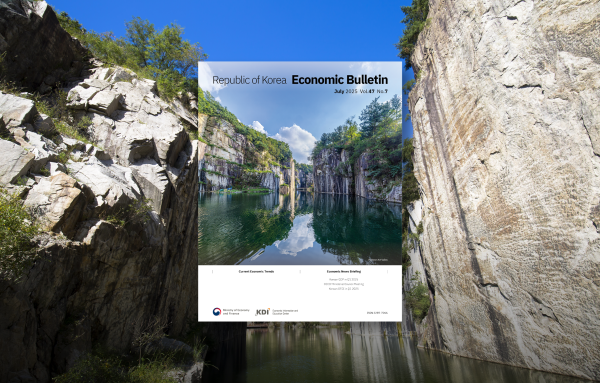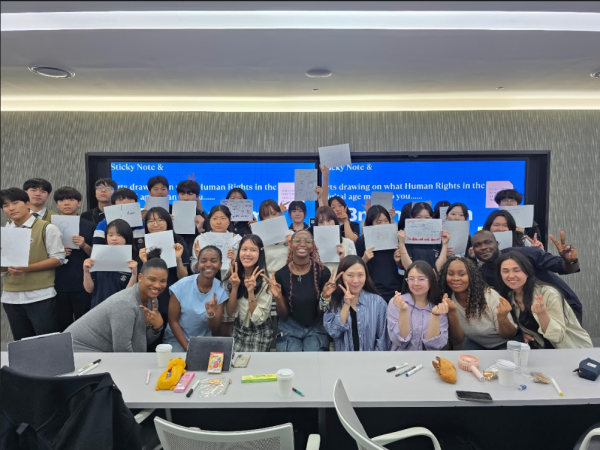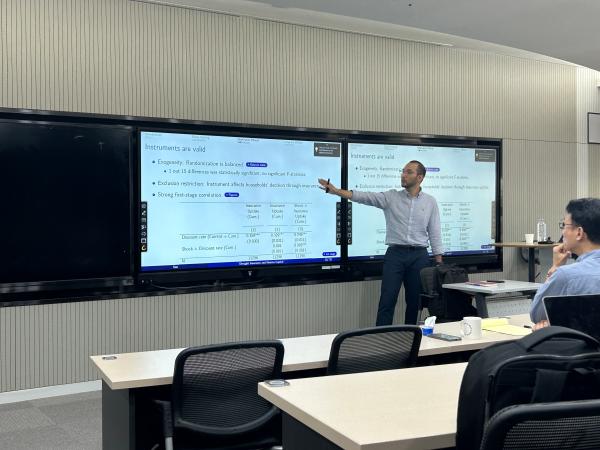
Republic of Korea Economic Bulletin, November 2024
- Date 2024-11-01 10:35
- CategoryResearch and Education
- Hit1260
The Economic Information and Education Center (EIEC) of KDI published the monthly periodical “Republic of Korea Economic Bulletin, November 2024” to promote a greater understanding of the Korean economy by providing readers with information on the latest economic trends and policy issues as well as relevant news and current events.
The November publication provides updated information related to the overall Korea’s economy including Korea’s GDP in Q3 2024, Korea’s interest rate cut, G20 meeting, Korea joins FTSE Russell Index, and inbound FDI as of Q3 2024.
Main content is as follows:
[Economic Bulletin, November 2024]
[Current Economic Trends]
1. Economic activity
2. Financial markets
3. Public finance
[Economic News Briefing]
- Korean GDP Increased by 0.1 % in Q3 2024 (Advance Estimate)
- The Bank of Korea Lowers Benchmark Interest Rate to 3.25%
- G20 Finance Ministers and Central Bank Governors Meeting
- Korea Joins FTSE Russell’s World Government Bond Index
- Inbound FDI Totaled US $25.2 billion as of Q3 2024
Overview
In August, industrial production, services production and retail sales increased, while facilities investment and construction investment decreased. In September, job growth increased and consumer prices growth continued to moderate.
In August, total production rose (up 1.2% m-o-m and up 1.1 y-o-y), as industrial production (up 4.1% m-o-m and up 3.8% y-o-y) and services production increased (up 0.2% m-o-m and up 0.9% y-o-y) while construction production declined (down 1.2% m-o-m and down 9.0% y-o-y).
In August, retail sales (up 1.7% m-o-m and down 1.3% y-o-y) increased, while facilities investment (down 5.4% m-o-m and up 7.8% y-o-y) and construction investment (down 1.2% m-o-m and down 9.0% y-o-y) decreased.
In September, exports grew by 7.5 percent from a year ago, driven by increased exports of the IT sector including semiconductors. The daily average of exports increased by 12.9 percent from a year ago.
In September, the Consumer Sentiment Index (CSI) dropped by 0.8 points to 100.0 month-on-month. The Composite Business Sentiment Index (CBSI) fell by 1.3 points to 91.2 in September, and the CBSI outlook for October also decreased by 0.1 points to 92.6 month-on-month.
In August, the cyclical indicator of the coincident composite index and the cyclical indicator of the leading composite index decreased by 0.1 points from the previous month, respectively.
In September, the economy added 144,000 jobs compared to the previous year and the unemployment rate fell by 0.2 percentage points from a year ago to 2.1 percent.
In September, the year-on-year growth of Consumer Price Index (CPI) slowed down to 1.6 percent. The index excluding food and energy prices increased by 2.0 percent, and the index excluding agricultural and petroleum products increased by 1.8 percent. The CPI for basic necessities rose by 1.5 percent.
In September, Korean equity prices fell due to concerns over heightened geopolitical tensions in the Middle East. The Korean Treasury Bond yields fell following an interest rate cut by the U.S. Fed, and the Korean Won strengthened against the dollar.
In September, housing prices and Jeonse (lump-sum deposits with no monthly payments) prices rose at a slower rate than the previous month (up 0.17% m-o-m and up 0.19% m-o-m, respectively).
As prices have continued to moderate and stabilize recently, the Korean economy has been able to show a sustained recovery, mainly driven by robust performances in the export and manufacturing sectors. Though domestic demand has shown a moderate recovery, particularly in facility investment and services, the pace of the recovery has varied across sectors.
The global economy has generally been on a recovery trend, mainly driven by a rebound in trade and a shift in monetary policy in major economies. However, the pace of recovery differs across regions. In addition, geopolitical risks such as the ongoing Russia-Ukraine war and the potential for further escalation in the Middle East conflict, and concerns about an economic slowdown in major economies, are contributing to increased uncertainty.
Against this background, the Korean government will seek to implement key policy tasks in a timely manner, including ensuring price stability, providing customized support for small business owners, and shoring up domestic demand. These efforts will also be pursued along with policies outlined in the ‘Dynamic Economy Roadmap’ which seeks to improve the quality of life of Koreans and enhance the sustainability of the Korean economy.
If you have any inquiries, please feel free to contact us.
(KDI Economic Bulletin, +82-44-550-4170, sjung@kdi.re.kr)
Related News
-

Research and Education13 days ago
Republic of Korea Economic Bulletin, July 2025#KDI #Economic #KDISCHOOL #kdischool #Economic Bulletin #Research
-

Story16 days ago
Summer 2025 Talent Donation Program: KDIS Forums Host Sejong High School Students#KDISCHOOL #KDIS #student #talent donation #student forums #student clubs
-

Research and Education17 days ago
Research Seminar by Hyuk Harry Son from Utrecht University



